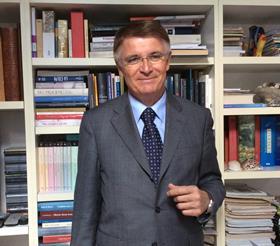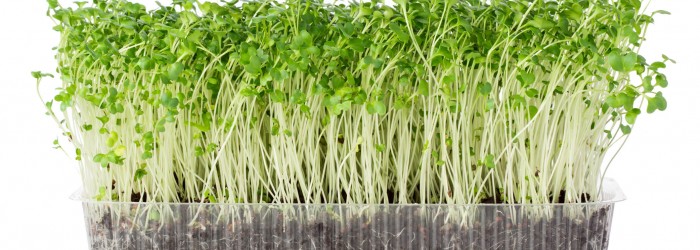
While it may sound like a contradiction, many believe that advances in technology will help the international fruit and vegetable supply base become more natural in future by rendering it less reliant on man-made pesticides. That’s certainly the view of Renzo Piraccini, the former boss of Italian fresh produce giant Apofruit and now president of the country’s largest industry trade fair, Macfrut. In this exclusive interview with Eurofruit, Renzo discusses the future direction of the business as it bids to capitalise on apparent growing demand among consumers for healthier food.
What opportunity do you see for horticulture in the overall international food business?
Renzo Piraccini: The global market is increasingly demanding fewer products of animal origin, such as meat and milk, whereas there is growing demand for products of plant origin that are grown with more natural techniques. In light of these trends, the industry is responding with innovative products and solutions. In the last few years, the fruit-growing sector has been the most dynamic one – just think, for instance, of the role of varietal innovations and the management of fruit clubs, with apples the most striking example. Now, the horticultural sector is undergoing a revolution that will change the face of the industry.
In what way will it do so?
RP: Horticulture is likely to develop in future, especially in protected environments – with the option of controlling humidity and the presence of insects – and we can also envisage crops that will require very little use, or even no use, of man-made chemical products for plant protection. Therefore, this means more natural cultivation methods and more wholesome produce. But new technologies will also allow leafy greens to be grown vertically instead of horizontally. At Macfrut 2017 we will see how the vertical farm [concept] has developed, giving us a glimpse of the future of horticultural production areas that will be located next to large urban areas, even using unimaginable spaces such as the roofs of houses. The industry is currently inundated with a variety of innovations, in terms of technology but also in the seed sector, which are opening up a whole new frontier.
Where do you see things changing in practice?
RP: The fresh-cut product sector, by which we mean products that are ready to eat. This has developed significantly in the last few years, and has changed literally thanks to the arrival of baby leaves. For those who are not familiar with the term, baby leaves are adult salads but smaller, with a minimum part cut out, so their shelf-life is much longer than that of traditional salads, which are cut and oxidise quickly. Today, baby leaves account for the bulk of [salad] sales and this category, which is being sold in an increasingly wide range, will definitely be the future of the industry.

What about mini vegetables or microgreens? What potential do you see there?
RP:These vegetables are harvested at a more advanced stage than traditional sprouts, but still before the adult stage. This means the plants are not mature and have a large concentration of nutrients. A study conducted by the University of Maryland showed the concentration of vitamins in these microgreens are up to 40 times higher than those of normal vegetables. This is why it is defined as ’super food’.
And, of course, we are not talking about GM here, are we?
RP: Absolutely not! They are not the result of genetic research; in fact, they are traditional varieties. Many of them have been rediscovered thanks to their nutritional properties, such as Tuscan black cabbage or radish. Other species used include broccoli, basil, coriander, beans, peas, basil, spinach and many others.
How are consumers using them?
RP: Microgreens are primarily being used as the main component of salads, but they are also used as garnishing, as a side dish, or as a basic ingredient for vegetable extracts and juices. Where are they grown?
Where are they grown?
RP: This is another great innovation that is bound to leave a mark. They are grown in unimaginable environments, even in cities, thanks to advanced household appliances available to families. Even in apartment buildings, in restaurants or supermarkets. We are talking about a vertical growing system and no longer a horizontal system as we know it. At Macfrut, we will highlight global innovations in both industrial and domestic cultivation, including cutting-edge technological solutions for retail stores. This is an area that will affect all parts in the supply chain. We will dedicate our opening conference to this plant revolution, as well as to new trends and future scenarios. In addition, we will dedicate part of our New Retail Solution area to this innovative segment, which is set to change the industry.
Presumably this is good news for the vegetable seed sector?
RP: Of course! And not only for the new varieties resulting from research and selection, but also for the rediscovery of old varieties that will thus be revisited in terms of nutritional content. The seed sector certainly plays a key role in this scenario, which explains the strategic agreement that Macfrut has signed with Assosementi. This industry association sees our trade fair as a means to accelerate these innovation processes and to promote the internationalisation of the supply chain.
The 34th edition of Macfrut takes place at the Rimini Expo Centre on 10-12 May.






No comments yet